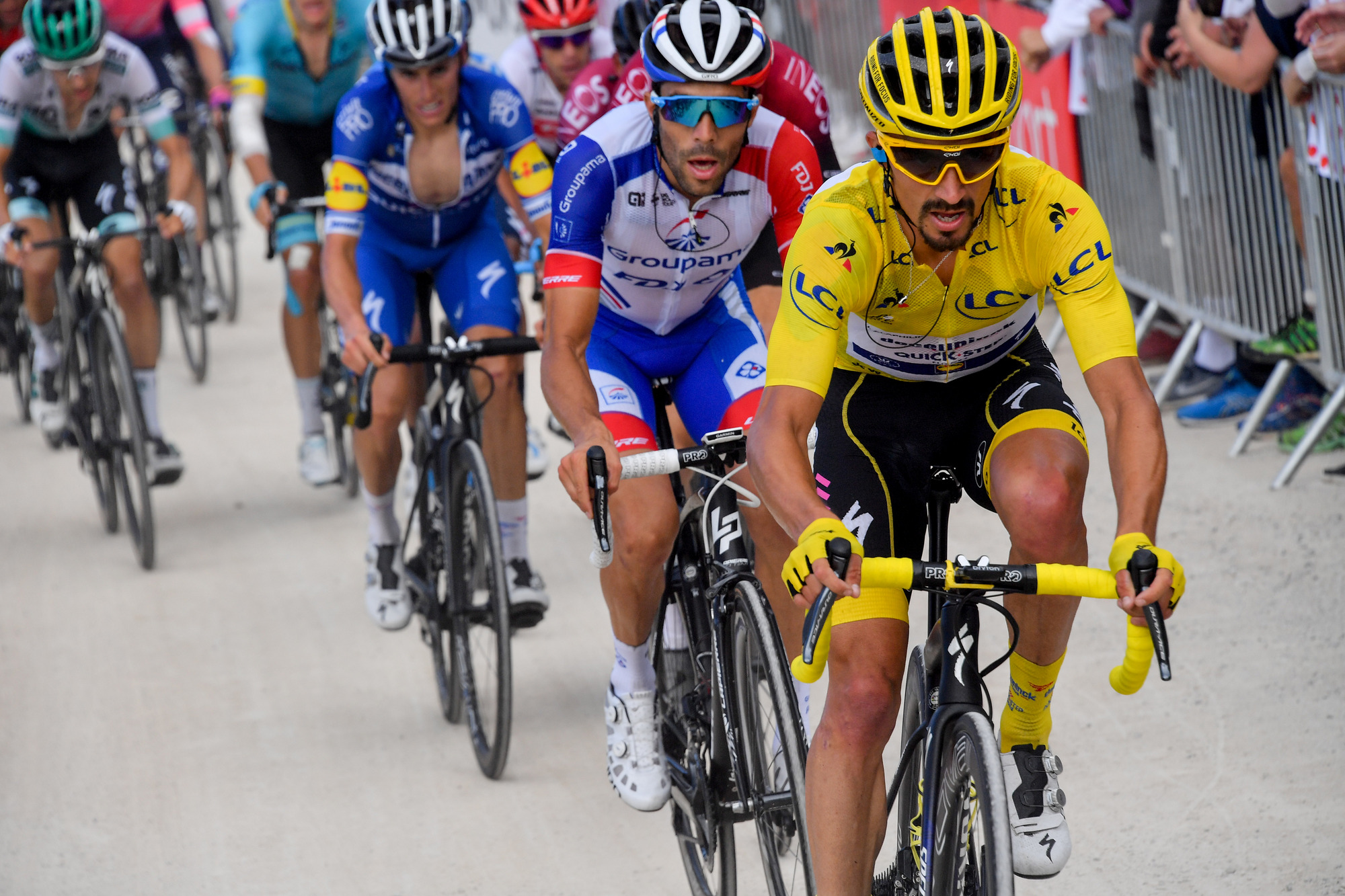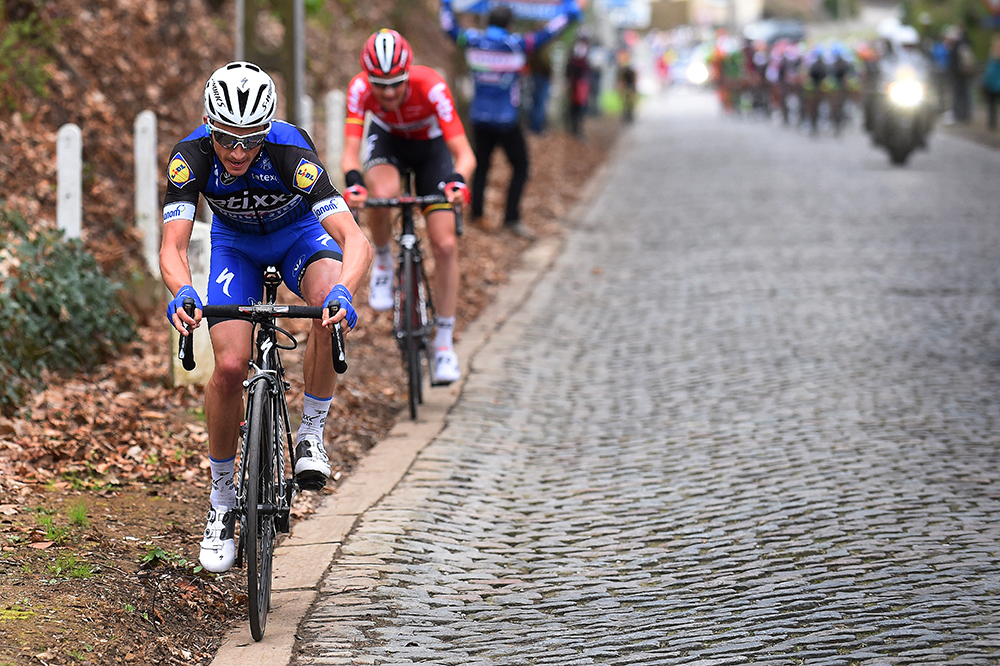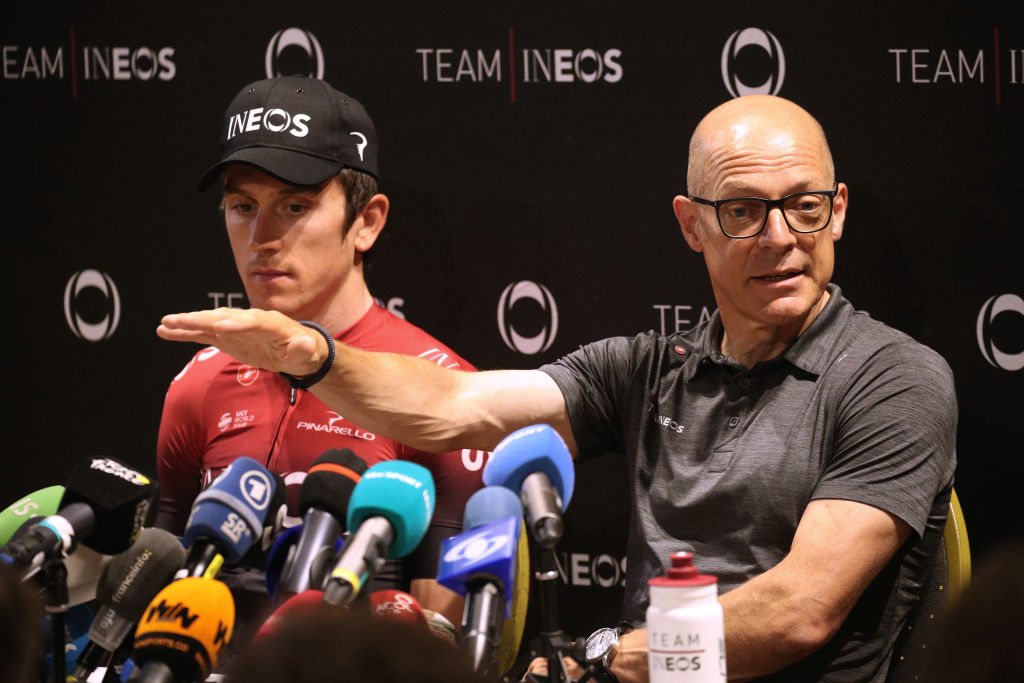Alaphilippe: There's an enormous difference between finishing 5th at the Tour de France and winning it
Tour of Flanders debut inspires Frenchman on eve of 2020 season

The latest race content, interviews, features, reviews and expert buying guides, direct to your inbox!
You are now subscribed
Your newsletter sign-up was successful
It takes a rare rider to win Milan-San Remo and Flèche Wallonne in the same spring and then produce a break-out top-five finish at the Tour de France that very summer, and Julian Alaphilippe, it seems, has drawn some lessons from the experiences of the last man to do so.
When Laurent Jalabert enjoyed his year of years in 1995, he spent much of the following winter being heralded as the rider most likely to end the host nation's then decade-long run of hurt at the Tour. Race director Jean-Marie LeBlanc had designed a route seemingly expressly tailored to his talents, and after Jalabert won the Classique des Alpes, Route du Sud and Midi Libre in the build-up to La Grande Boucle, home expectation went into overdrive. 'Laurent, c'est ton Tour!' read the famous headline in Vélo Magazine's preview issue that June.
It wasn't to be. Jalabert's challenge unravelled on the first day in the Alps and he left the race ahead of the rest day in Gap. Although his campaign included some 15 victories, his year was widely condemned as a failure simply because he couldn't conjure up the same magic before Le Grand Public in July.
Perhaps with that in mind, Alaphilippe has consistently stressed in recent months that overall victory at the Tour will not be an objective in 2020. He will, of course, be at the Grand Départ in Nice, and it would be a surprise if he is not a protagonist on a parcours that tallies so well with his characteristics, but he downplayed his GC prospects when he met the press at Deceuninck-QuickStep's team presentation in Calpe on Friday.
"The fact I wore the yellow jersey for 14 days shows it didn't come about by circumstance, but on the other hand, there were no excuses when I lost it at the end, I was on the limit," Alaphilippe said.
"It's nice, finishing 5th at the Tour, but there's an enormous difference between finishing 5th on the Tour and winning it.
"Making up that gap to one day win the Tour isn't something that's in my head right now, but I won't say no in the future. I'm not saying that in a few years I won't decide to build everything around the Tour. But that would go against the way I ride, and it isn't necessarily the objective of the team to build itself around the GC of the Tour de France either. It could happen, but it would need things to be put in place, and that's not the case for this year or the next."
The latest race content, interviews, features, reviews and expert buying guides, direct to your inbox!

Tour of Flanders debut
After winning twelve races in 2019 and claiming the Vélo d'Or and the title of French sportsperson of the year to boot, it would be understandable if Alaphilippe sought to replicate the same programme this time out. He will once again start his campaign in South America, with the Vuelta a San Juan followed by Colombia 2.1, but he will eschew Strade Bianche and Tirreno-Adriatico this March in favour of a return to Paris-Nice. With a 15.1km time trial in his native Saint-Amand-Montrond, he had surely had little choice. "I'm not going to say that I'm absolutely looking for final victory in Paris-Nice, but it will be important to do a good week and see how I feel," he said.
The other major alteration to Alaphilippe's spring programme comes on the first weekend in April, when he lines up for his Tour of Flanders debut after selling the idea to an initially reticent Patrick Lefevere, who maintains his rider's best chance of Monument success comes three weeks later at Liège-Bastogne-Liège.
"Patrick was in agreement that I could do it but he asked me not to put it in my head as my main objective of the first part of the season. He said, 'Ok, we're happy you're there for the Tour of Flanders, but you also have to be there as far as Liège-Bastogne-Liège.' And, well, the Ardennes Classics are still the races that suit me best and races that I've always liked," said Alaphilippe.
"I'm going to discover the Tour of Flanders on a team that knows these roads by heart with experienced riders. I don't know what I can expect but my dream now would be to be up there in the final. That must be something special to experience."
The problem for Alaphilippe, albeit a luxurious one, is his surfeit of opportunity across the entire season. His abilities across all terrains means that there are few races on the calendar where he doesn't pose a threat, and dosing his energy across the campaign might prove something of a conundrum. Just six days after the conclusion of the Tour, for instance, he will be in Tokyo among the favourites for the Olympic Games road race and, perhaps, even the time trial.
In September, meanwhile, he seems an obvious contender for victory in the World Championships in Switzerland, while Il Lombardia, where he placed second in 2017, is another objective.
"I just hope I can manage my season and include periods of recovery that allow me to go as far as Lombardy because I haven't done it for the last two years," Alaphilippe said. "It's a race that I've missed, and I want to win it too."
Alaphilippe's remarkable 2019 Tour saw him wear the maillot jaune for 14 days and win two stages, including the Pau time trial, but his impact with a wider audience in July owed as much to his style of riding – and his relaxed style of greeting grandees such as Emmanuel Macron – as it did to his results. He politely rejected the idea that providing entertainment was more valuable than crossing the line first, though he added that they were not mutually exclusive.
"Winning is the most important thing," Alaphilippe said. "But it's even better if there's a spectacle. I've always been like that. The victory is the most important thing, but I like it when something unexpected happens."

Barry Ryan was Head of Features at Cyclingnews. He has covered professional cycling since 2010, reporting from the Tour de France, Giro d’Italia and events from Argentina to Japan. His writing has appeared in The Independent, Procycling and Cycling Plus. He is the author of The Ascent: Sean Kelly, Stephen Roche and the Rise of Irish Cycling’s Golden Generation, published by Gill Books.
